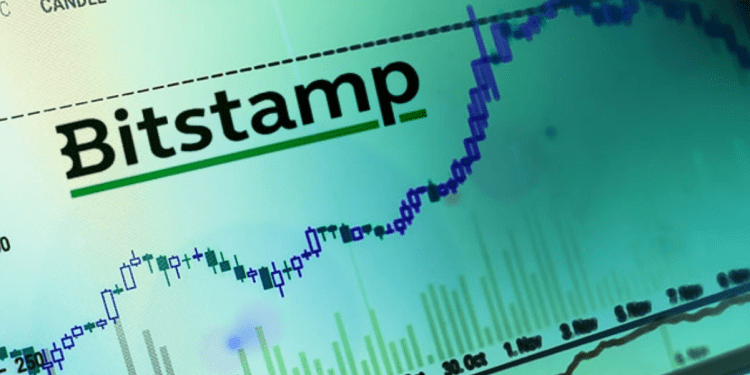- Bitstamp will halt Ether (ETH) staking services for US customers from September 25, 2023.
- This move follows the exchange’s earlier cessation of trading for seven altcoins in the US, largely due to regulatory pressures.
- The SEC’s proactive scrutiny of staking services has caused exchanges like Bitstamp and Kraken to recalibrate their offerings in the US.
In a significant development, Bitstamp, one of the world’s leading cryptocurrency exchanges, recently announced its decision to cease Ether (ETH) staking services for its US-based clientele. The move is set to take effect on September 25, 2023. This announcement comes at the heels of the exchange’s earlier resolution to halt trading for seven altcoins in the US. Up until this date, customers will still accrue staking rewards.
Subsequently, all staked assets will be unstaked, and both the principal and the rewards will be credited to the users’ primary Bitstamp accounts. As per Bobby Zagotta, the U.S. CEO and global chief commercial officer at Bitstamp, users might have to wait a few days post the cessation date to see these changes reflected in their balances.
A look at Bitstamp’s staking commission reveals a 15% cut on all staking rewards. For context, staking ETH on the platform yields a monthly reward rate of 4.50%, whereas staking Algorand (ALGO) garners a reward rate of 1.60%. With this suspension, the US joins a list of nations, including Canada, Japan, Singapore, and the United Kingdom, where Bitstamp’s staking services are currently unavailable.
An Uncertain Regulatory Landscape
The root of Bitstamp’s decision can be traced back to recent legal developments within the United States. Just a month before this announcement, Bitstamp declared the cessation of trading for seven altcoins, namely Axie Infinity (AXS), Chiliz (CHZ), Decentraland (MANA), Polygon (MATIC), Near (NEAR), The Sandbox (SAND), and Solana (SOL) for US users. Notably, these altcoins had been tagged as unregistered securities by the U.S. Securities and Exchange Commission (SEC) earlier in June, a declaration that was part of the SEC’s lawsuits against crypto giants Binance and Coinbase.
Ether, the native cryptocurrency of the Ethereum blockchain and the second-largest by market cap after Bitcoin, finds itself in the middle of a regulatory storm in the US. The main contention lies in the categorization of ETH – whether it should be viewed as a commodity or a security. While the Commodity Futures Trading Commission consistently labels Ether as a commodity, the SEC has been less clear, with its Chair, Gary Gensler, affirming Bitcoin’s status as a commodity but refraining from doing the same for ETH.
Avoiding The SEC’s Scrutiny
Bitstamp’s recent decisions, including the cessation of staking services, seem to be a mirror reflecting broader challenges that crypto exchanges face in the US. The evolving regulatory atmosphere, especially surrounding staking services, is a hotbed of contention. Zagotta emphasized Bitstamp’s staunch commitment to compliance, citing a robust framework to assess supported services in light of the mutable regulatory climates in the regions they operate.
The SEC’s engagement in inspecting staking services has been vigorous. By their stance, staking programs can be potentially classified as investment contracts under the Howey test, a criterion to determine if certain transactions can be termed “investment contracts.” If they are deemed so, they fall under specific regulatory guidelines. This proactive approach from the SEC is evident from its legal confrontations with crypto juggernauts like Coinbase and Binance.














